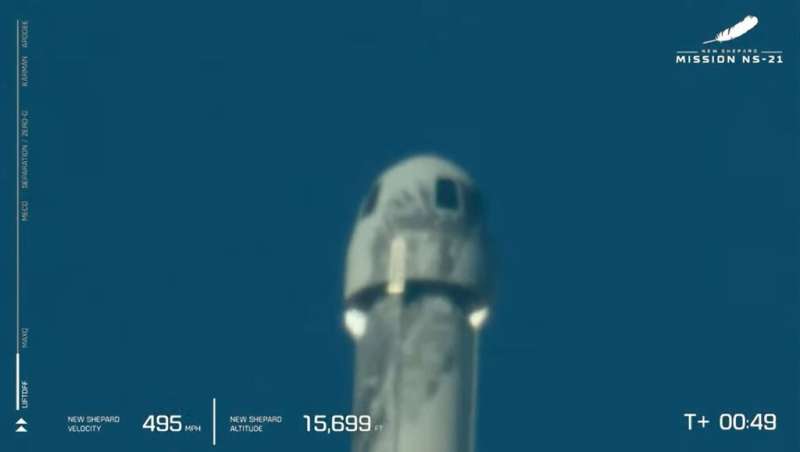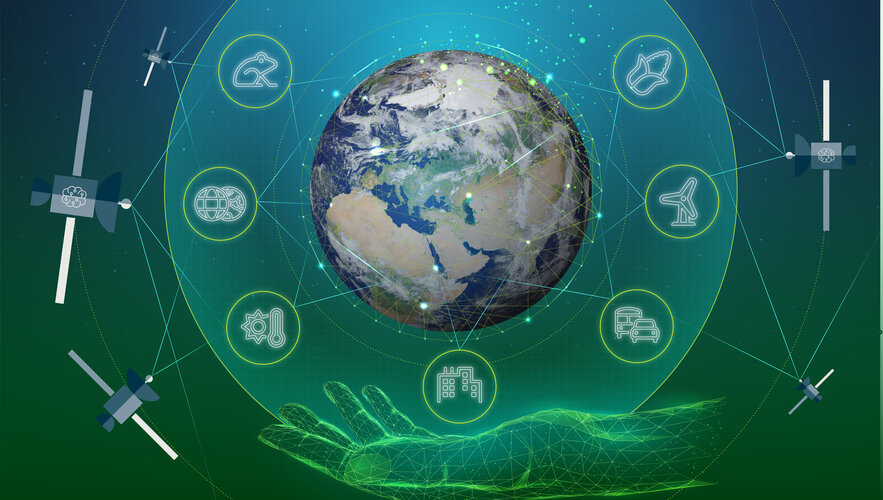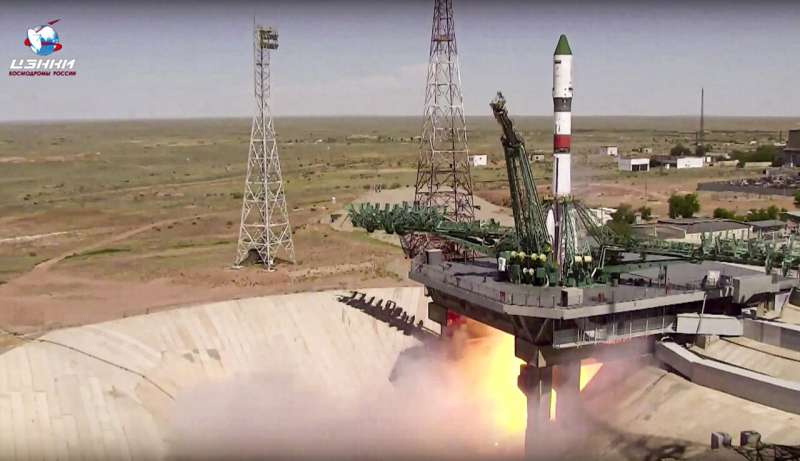
Copernical Team
China sends three astronauts to complete space station
 China on Sunday launched a rocket carrying three astronauts on a mission to complete construction on its new space station, the latest milestone in Beijing's drive to become a major space power.
The trio blasted off in a Long March-2F rocket at (0244 GMT) from the Jiuquan launch center in northwestern China's Gobi desert, said state broadcaster CCTV, with the team to spend six months expandi
China on Sunday launched a rocket carrying three astronauts on a mission to complete construction on its new space station, the latest milestone in Beijing's drive to become a major space power.
The trio blasted off in a Long March-2F rocket at (0244 GMT) from the Jiuquan launch center in northwestern China's Gobi desert, said state broadcaster CCTV, with the team to spend six months expandi Bezos's Blue Origin makes 5th crewed flight into space

Jeff Bezos's company Blue Origin flew six tourists into space for a 10-minute ride Saturday, successfully carrying out its fifth crewed mission.
The white spacecraft called New Shepard lifted off with a roar from a desert spot in west Texas at 8:26 local time (1326 GMT).
The crew hooted with glee as the rocket reached space, a Blue Origin webcast showed.
The flight included engineer Katya Echazarreta, who at 26 became the youngest American woman in space. The Guadalajara native also became the first Mexican-born woman to go into space.
China plans to complete space station with latest mission

Join the ESA Teach with Space Online Conference 2022

World Environment Day: ESA supports shift to a greener world

Celebrated each year on 5 June, World Environment Day focuses on awareness of environmental challenges and action to protect planet Earth. Take a look at five ESA-supported projects that use satellite data and services to address specific environmental problems.
Russia's supply ship arrives at International Space Station

The consequences of climate change in the Alps are visible from space
 Global warming has a particularly pronounced impact on the Alpine region. Like the Arctic, this European mountain range is becoming greener. Writing in the journal Science, researchers from the University of Lausanne and the University of Basel have now used satellite data to show that vegetation above the tree line has increased in nearly 80% of the Alps. Snow cover is also decreasing, albeit s
Global warming has a particularly pronounced impact on the Alpine region. Like the Arctic, this European mountain range is becoming greener. Writing in the journal Science, researchers from the University of Lausanne and the University of Basel have now used satellite data to show that vegetation above the tree line has increased in nearly 80% of the Alps. Snow cover is also decreasing, albeit s China's newly-launched meteorological satellites put into trial operation
 Two meteorological satellites, along with their ground application systems, began trial operation on Monday, said the China Meteorological Administration.
The two satellites, Fengyun-3E (FY-3E) and Fengyun-4B (FY-4B), will provide observation data and application services to global users.
The FY-3E, launched on July 5, 2021, was the world's first meteorological satellite in early mor
Two meteorological satellites, along with their ground application systems, began trial operation on Monday, said the China Meteorological Administration.
The two satellites, Fengyun-3E (FY-3E) and Fengyun-4B (FY-4B), will provide observation data and application services to global users.
The FY-3E, launched on July 5, 2021, was the world's first meteorological satellite in early mor China launches nine Geely-01 satellites
 China on Thursday launched a Long March-2C carrier rocket to place a group of nine commercial satellites in space.
The Geely-01 constellation consisting of nine satellites were lifted at 12:00 p.m. (Beijing Time) from the Xichang Satellite Launch Center in southwest China's Sichuan Province and entered the preset orbit.
Owned by GeeSpace, a subsidiary of Geely Technology Group, the s
China on Thursday launched a Long March-2C carrier rocket to place a group of nine commercial satellites in space.
The Geely-01 constellation consisting of nine satellites were lifted at 12:00 p.m. (Beijing Time) from the Xichang Satellite Launch Center in southwest China's Sichuan Province and entered the preset orbit.
Owned by GeeSpace, a subsidiary of Geely Technology Group, the s Close encounter more than 10,000 years ago stirred up spirals in accretion disk
 Dr. LU Xing, an associate researcher from the Shanghai Astronomical Observatory (SHAO) of the Chinese Academy of Sciences, along with collaborators from Yunnan University, the Harvard-Smithsonian Center for Astrophysics, and the Max Planck Institute, have used high-resolution observational data from the Atacama Large Millimeter/submillimeter Array (ALMA) to discover a massive protostellar disk i
Dr. LU Xing, an associate researcher from the Shanghai Astronomical Observatory (SHAO) of the Chinese Academy of Sciences, along with collaborators from Yunnan University, the Harvard-Smithsonian Center for Astrophysics, and the Max Planck Institute, have used high-resolution observational data from the Atacama Large Millimeter/submillimeter Array (ALMA) to discover a massive protostellar disk i 
